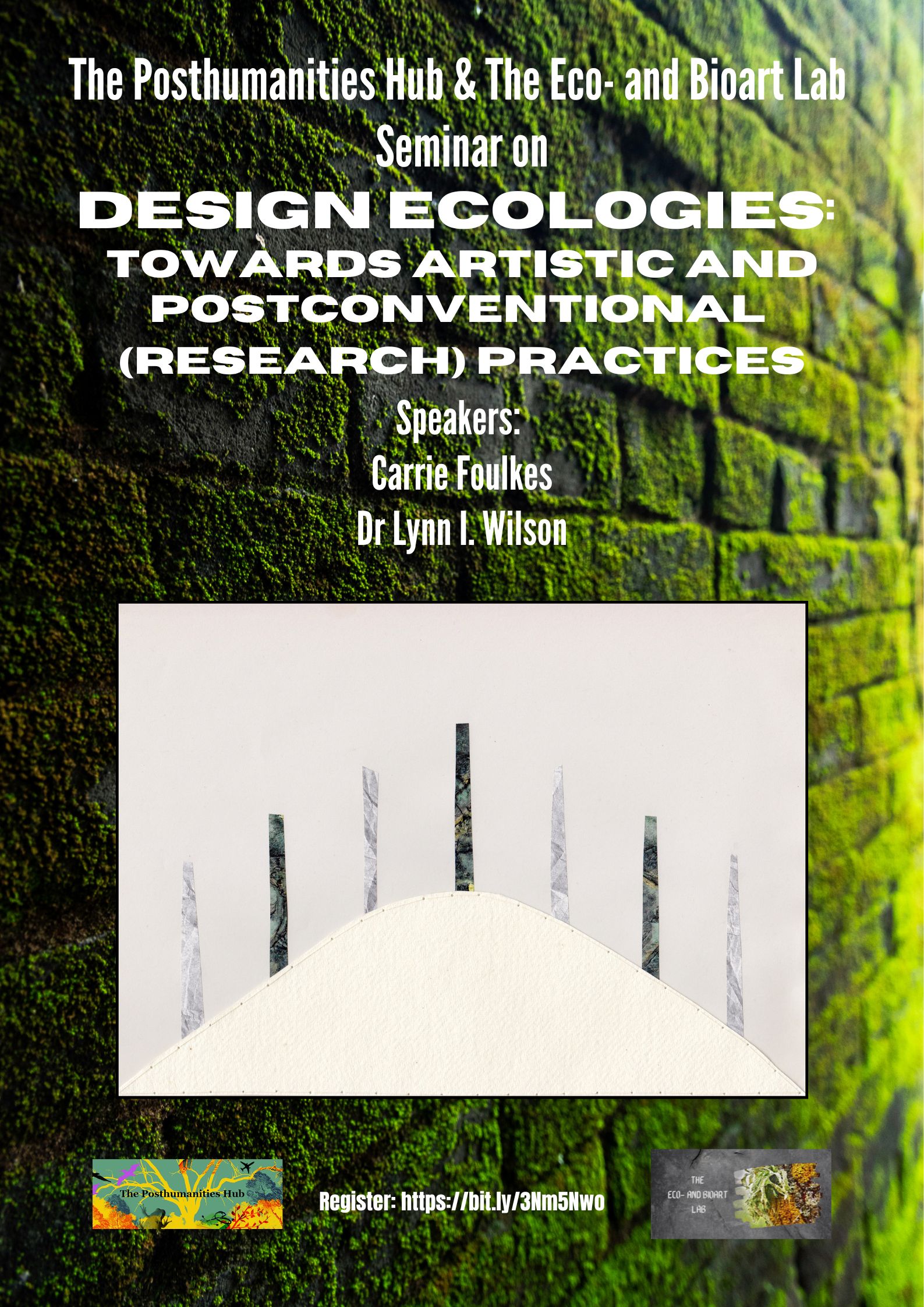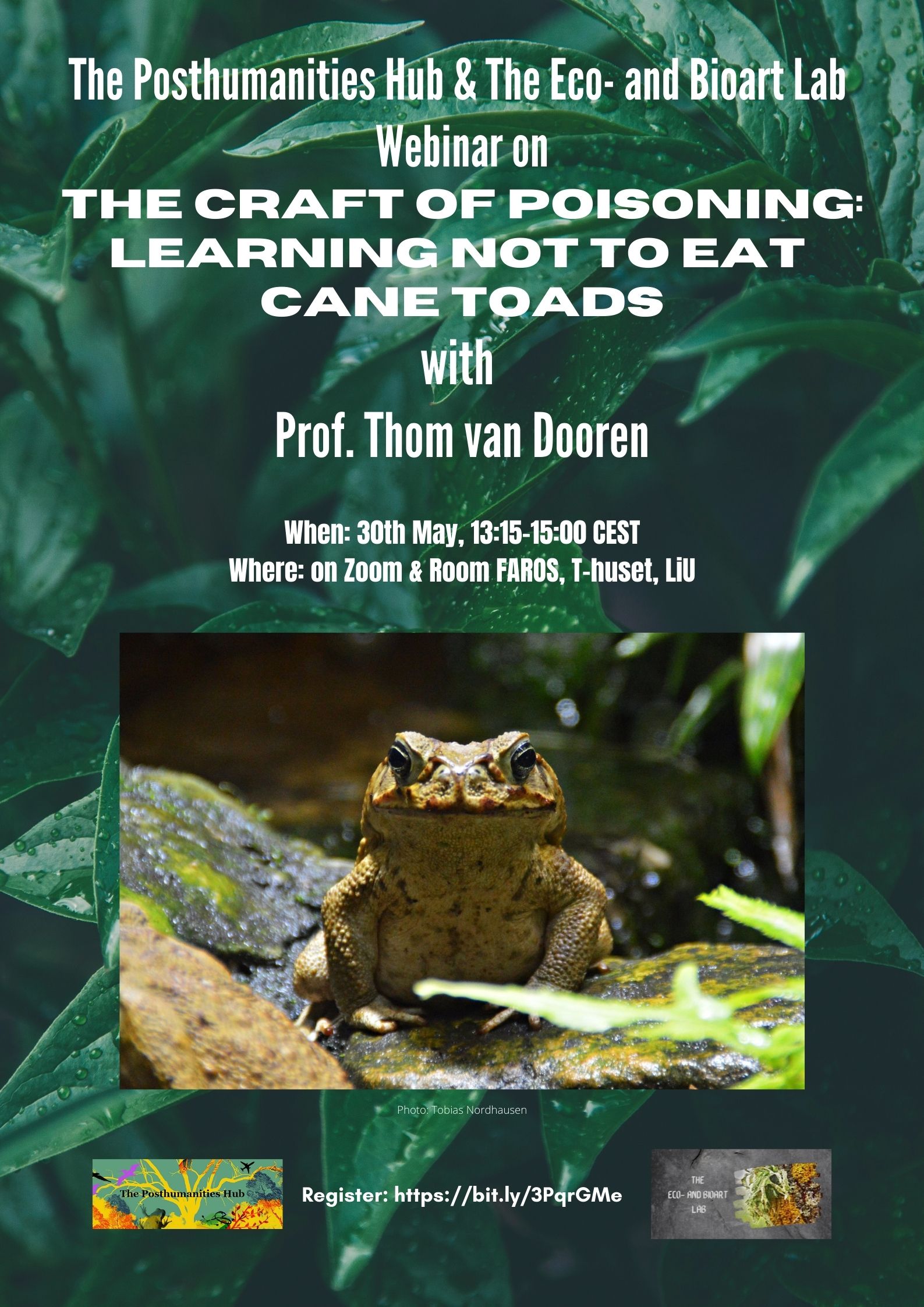-

PH & EBL Webinar: “Oceanic Humanities for the Global South”, 15th September 2022, 13:15-15:00 CEST
Welcome to The Posthumanities Hub and The Eco- and Bioart Lab Webinar “Oceanic Humanities for the Global South” with Prof. Em. Isabel Hofmeyr, Dr Charne […]
-

PH & EBL hybrid seminar on “Design Ecologies: Towards Artistic and Postconventional (Research) Practices”, 14th June!
Welcome to The Posthumanities Hub & The Eco- and Bioart Lab Hybrid Seminar on “Design Ecologies: Towards Artistic and Postconventional (Research) Practices” with speakers Carrie […]
-

PH & EBL Seminar/Webinar with Prof. Thom van Dooren, 30th May, 13:15-15:00 CEST
It is our great pleasure to welcome you all to the upcoming Posthumanities Hub and The Eco- and Bioart Lab Seminar/Webinar with Prof. Thom van […]